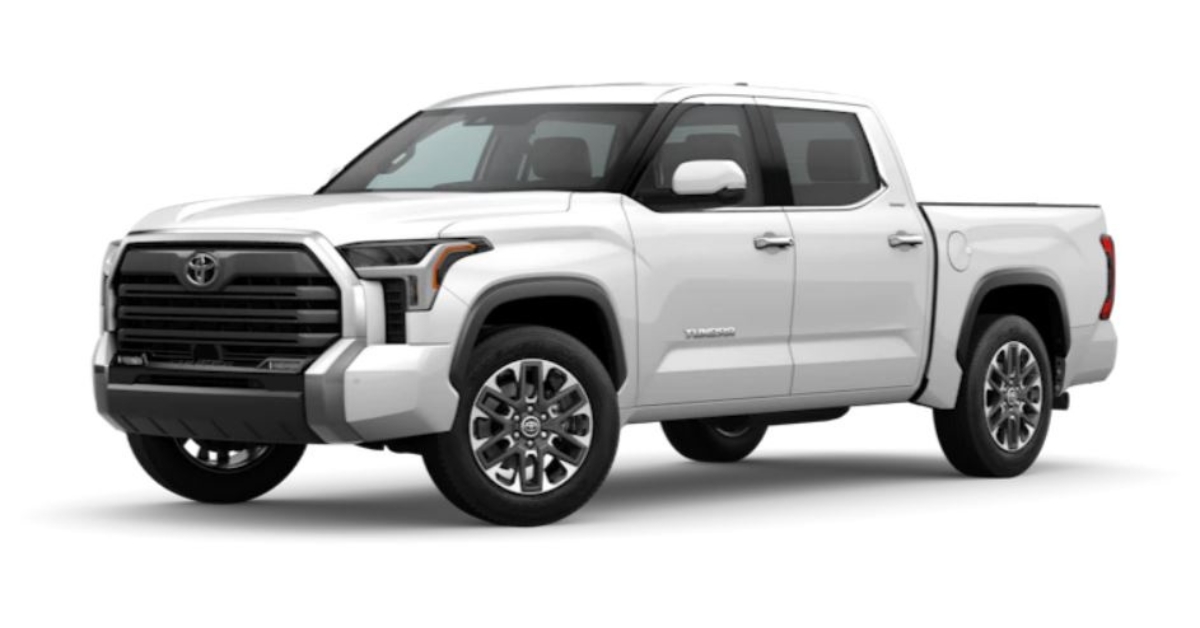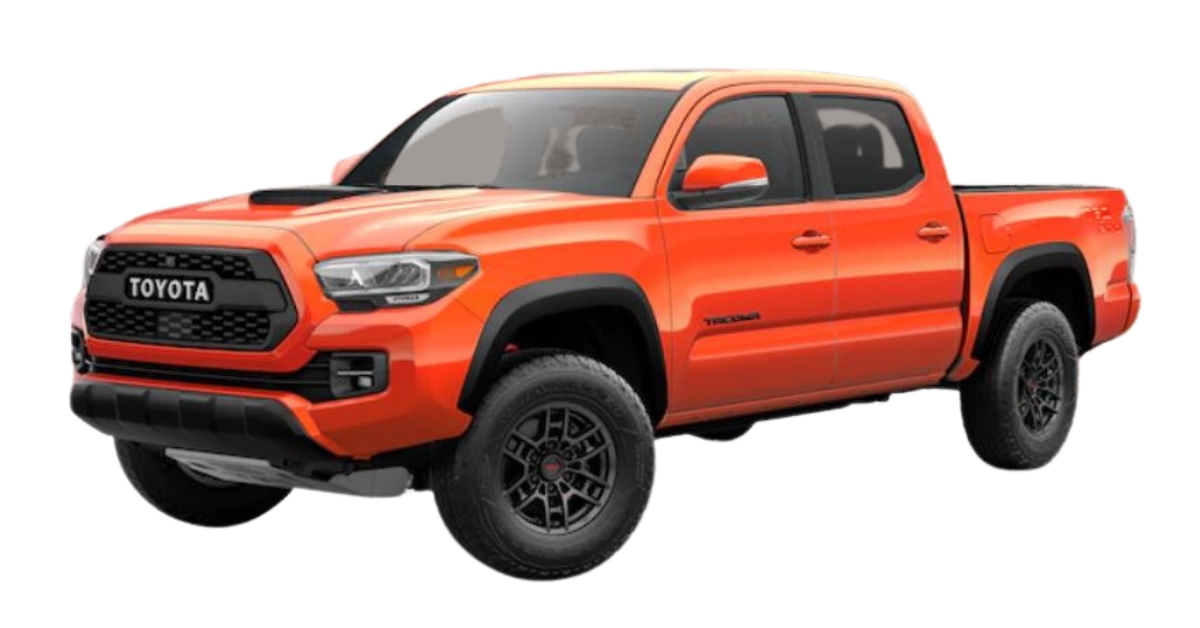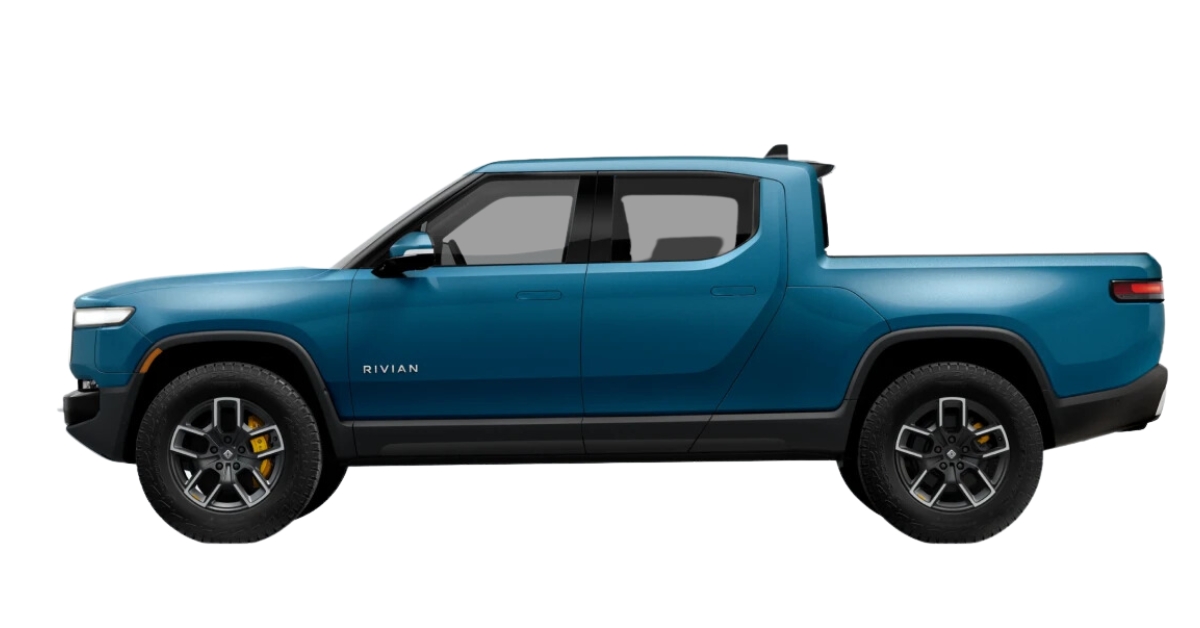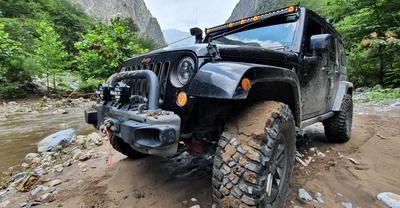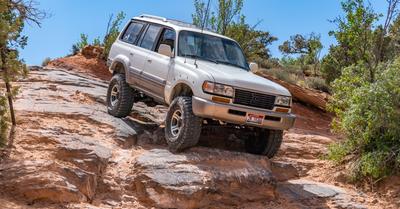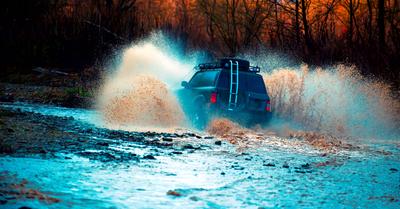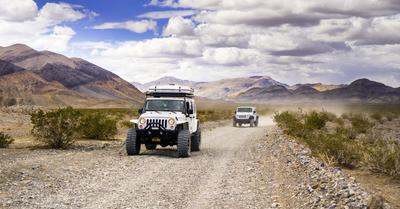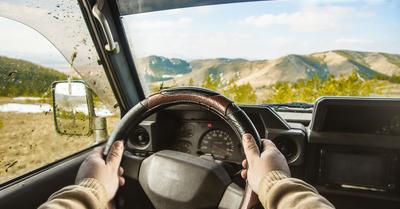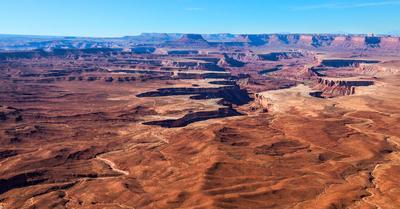Overlanding has become popular among adventurers looking to explore remote areas. But you need the best trucks to truly experience it for yourself.
The best overlanding trucks include the Toyota Tundra, Ford F-150, Toyota Tacoma, Jeep Gladiator, GMC Sierra AT4X, and Rivian R1T. These trucks prioritize off-road driving, comfort, cargo space, and agile handling. With these trucks, you can expect excellent overlanding performance.
This guide dives into the best six overlanding trucks available in the market, comparing their features, pros, and cons to help you make an informed decision. Whether you value power, off-road capability, or luxury, you will find a truck that perfectly fits your overlanding needs.
Key Takeaways
- The best overlanding truck I would recommend is the Toyota Tundra.
- You should expect to travel 50-200 miles daily while overlanding in a truck.
- Modern overlanding trucks offer various amenities and advanced features, offering both utility and comfort for long drives.
- The best size for an overlanding truck depends on individual needs and preferences, considering maneuverability, fuel efficiency, and cargo space.
This article may contain affiliate links where we earn a commission from qualifying purchases.
6 Best Overlanding Trucks
To find the best overland vehicle, you must decide what truck style fits your driving needs. Consider the terrain you’ll be tackling during your overland travel to make your search easier.
Overlanding typically involves traveling to remote destinations where the journey is the principal goal, often involving off-road and cross-country travel. The emphasis is on self-reliance, independence, and the experiences gained through personal engagement with nature.
Trucks play a pivotal role in overlanding. They're not just a mode of transportation but a crucial tool for navigating diverse terrains and carrying necessary supplies and equipment.
The right overlanding truck can provide a comfortable space for sleeping, cooking, and shelter, enhancing the overall experience. With this in mind, we have put together a list of 6 trucks we believe work best in these conditions.
1. Toyota Tundra
Toyota Tundra
The Toyota Tundra has long been known for its durability and dependability. With a powerful V8 engine and a towing capacity of up to 10,200 pounds, the Tundra can handle any terrain or load you throw at it.
Its spacious cabin provides ample room for passengers and gear, making it an ideal choice for long journeys. Additionally, features like a sturdy suspension system, skid plates, and an available TRD Pro package enhance its off-road capability.
The Tundra may not be the best in its class regarding fuel efficiency. However, its renowned reliability and ruggedness make it a top choice for overlanding enthusiasts who prioritize durability and off-road performance over fuel economy.
What Sets This Truck Apart
One of the standout features of the Tundra is its powerful V8 engine. With its impressive horsepower and torque, this engine gives the Tundra the strength it needs to conquer any task.
Whether towing a trailer or hauling supplies, the Tundra's engine delivers the power you need to do the job. But it's not just about power with the Tundra.
Toyota has also paid attention to the comfort and convenience of the driver and passengers. The spacious cabin offers plenty of legroom and headroom, ensuring everyone can travel comfortably.
Pros
- Renowned for reliability
- Powerful engine options
- Comfortable, feature-rich interior
- High payload and towing capacity
- Extensive customization options
Cons
- Difficult maneuverability due to size
- Potentially high cost with upgrades
2. Ford F-150
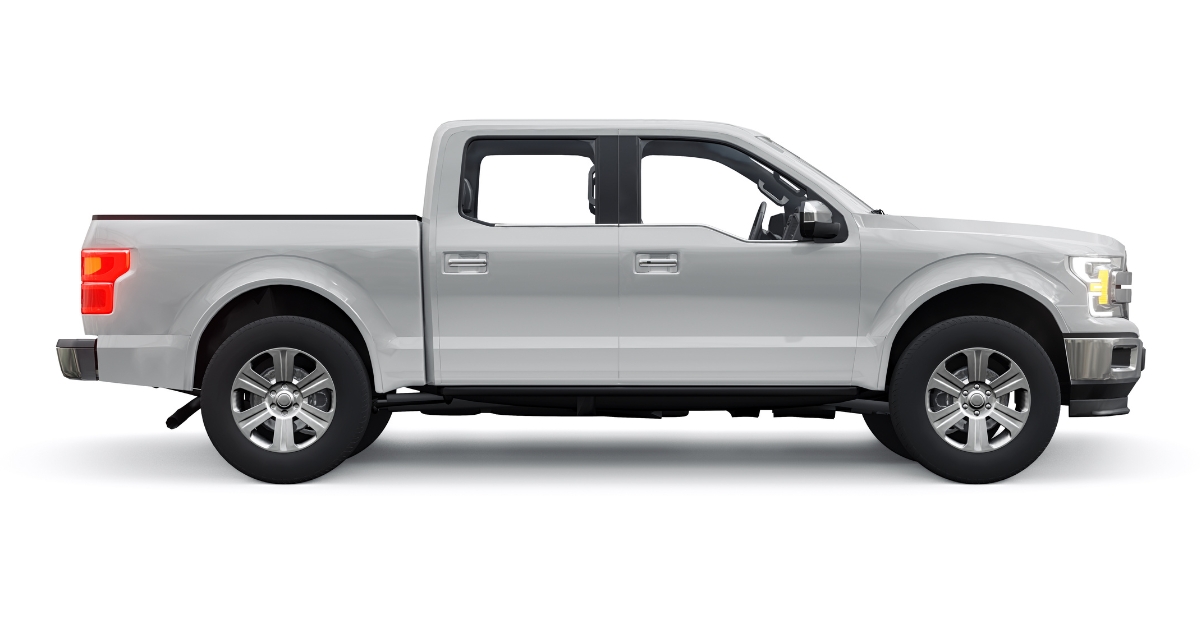
Ford F-150
The Ford F-150 has been America's best-selling truck for decades and for good reason. With many engine options, including a hybrid variant, the F-150 offers power and fuel efficiency.
Whether you're hauling heavy loads or cruising on the highway, the F-150's engines deliver impressive performance and exceptional fuel economy. I can’t help but love how amazing this overland vehicle is because of the durable truck bed.
Plus, you get amazing ground clearance that makes driving off-road much easier. One standout feature is the adaptive cruise control and the best-in-class aftermarket support. This is one of my favorite pickup truck options.
What Sets This Truck Apart
When it comes to safety, the F-150 doesn't disappoint. It comes equipped with the Ford Co-Pilot360 suite of driver-assistance technologies, which includes features like blind-spot monitoring, lane-keeping assist, and automatic emergency braking.
The F-150 is also a beast when it comes to hauling. Its rugged frame and advanced towing capabilities make it a top choice for overlanding enthusiasts. With a maximum towing capacity of up to 14,000 pounds, the F-150 can handle just about anything you throw at it.
But it's not just about power and capability. This full-size truck also offers a comfortable and spacious interior, with plenty of room for both passengers and cargo. The cabin is designed with high-quality materials and thoughtful touches, creating a refined and inviting atmosphere.
Pros
- Numerous engine options, including hybrid
- Exceptional towing and payload capacity
- Advanced technology and convenience features
- High-quality, comfortable interior
- Extensive aftermarket support
Cons
- Fuel efficiency varies greatly by model
- Some find ride quality to be firm
3. Toyota Tacoma
Toyota Tacoma
If you seek a highly maneuverable and agile overlanding truck, the Toyota Tacoma should be on your list. With its compact size and impressive off-road capabilities, the Tacoma can handle tight trails and rocky terrains with ease. This is easily one of the best overland vehicles.
The Tacoma's smaller size does pose some limitations in terms of cargo space and towing capacity. However, its fuel efficiency and unparalleled off-road performance make it an attractive option for overlanding enthusiasts who prioritize versatility and agility.
Its sturdy construction and robust frame provide the necessary durability to tackle even the toughest terrains. Equipped with a powerful engine, the Tacoma delivers impressive torque and horsepower, ensuring that you have enough power to conquer any obstacle that comes your way.
What Sets This Truck Apart
One of the standout features of the Tacoma is its optional TRD Off-Road package. This package takes the truck's off-road capabilities to the next level with its enhanced suspension system.
Whether you're navigating through uneven terrain or conquering steep inclines, the Tacoma's suspension system absorbs shocks and bumps, providing a smooth and controlled ride. This is key for overlanding vehicles.
In addition to the enhanced suspension system and crawl control, I also noticed the truck includes solid axles and a locking rear differential. This feature ensures power is evenly distributed to both rear wheels, maximizing traction and providing superior off-road performance.
Pros
- Excellent off-road performance
- Compact size improves maneuverability
- Long-lasting reliability
- High resale value
- Good aftermarket support
Cons
- Smaller cab size may limit comfort
- Engine options could offer more power
4. Jeep Gladiator
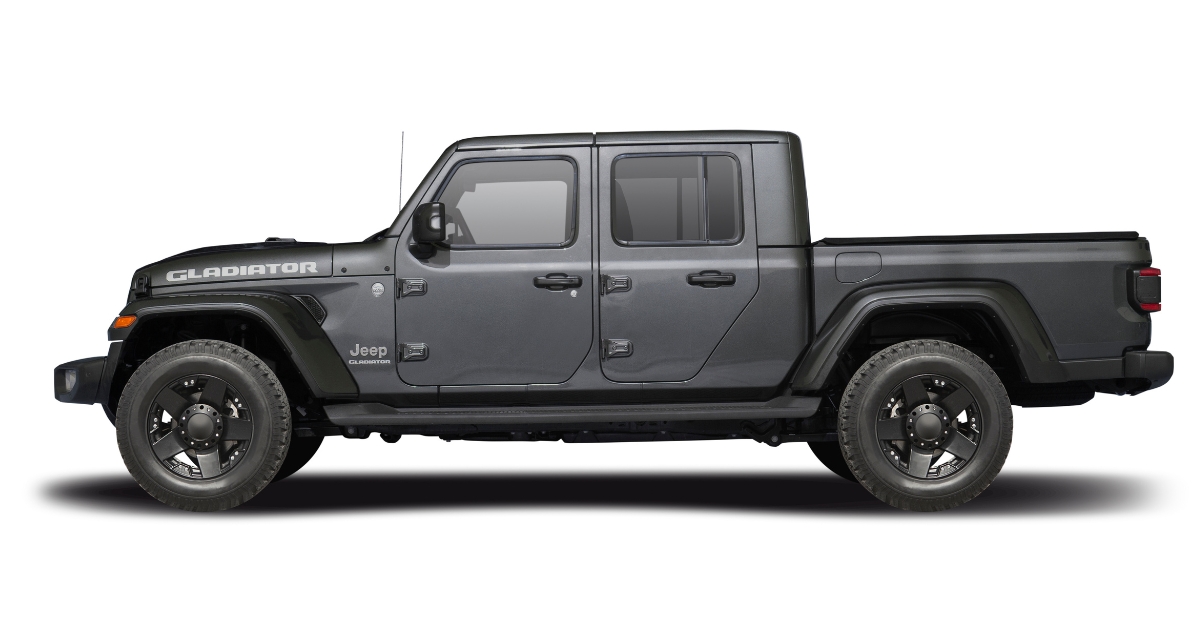
Jeep Gladiator
For those seeking an overlanding truck that combines the off-road prowess of a Jeep with the utility of a pickup truck, the Jeep Gladiator is a perfect choice.
With its iconic Jeep design and rugged construction, the Gladiator can easily conquer any trail. Its removable top and doors provide an open-air driving experience, perfect for exploring scenic routes and taking in breathtaking views.
In terms of payload and towing capacity, the Gladiator can haul up to 1,600 pounds and tow up to 7,650 pounds respectively. Additionally, its available off-road features, such as locking differentials and a disconnectable sway bar, further enhance its off-road capabilities, making it a true overlanding beast.
What Sets This Truck Apart
The Gladiator is a standout due to its extraordinary off-road capabilities inherited from its Wrangler heritage and the added utility of a five-foot truck bed.
It also retains the Wrangler's convertible options, offering a removable roof and doors for an open-air experience that no other truck on the market can match. The Gladiator has a unique design, and many praise it as the best overlanding vehicle.
It combines an eight-speed automatic transmission, four-wheel drive, and a durable truck bed for carrying overlanding gear. It’s like a pickup truck version of the Land Rover Defender and Land Cruiser.
Pros
- Unmatched off-road capabilities
- Convertible options for an open-air experience
- Versatile truck bed for added utility
- Attractive design with Jeep character
- Good towing capacity for its size
Cons
- Lower fuel efficiency
- More expensive than similar-sized pickups
5. GMC Sierra AT4X
The GMC Sierra AT4X is designed to handle tough terrains while providing a comfortable on-road experience. Its off-road suspension system and Rancho shocks ensure a smooth ride.
This truck includes key features like an available CarbonPro bed and MultiPro tailgate that offer unmatched versatility and convenience. This truck is equipped with a powerful V8 engine that delivers impressive towing capabilities.
Paired with advanced trailering technologies, such as the ProGrade Trailering System, the Sierra AT4X makes towing and hauling a breeze. If you're looking for a truck that excels both on and off the beaten path, the Sierra AT4X is worth considering.
What Sets This Truck Apart
This truck takes durability and off-road performance to a new level. It merges luxury, off-road capability, and towing prowess into one robust package.
It has a distinctive blend of off-road readiness and luxury that set it apart in the world of overlanding. It comes equipped with specialty features like GMC’s Adaptive Ride Control, two-speed transfer case, and front and rear locking differentials.
The AT4X is not just about rugged off-road capabilities; it also delivers high-end comfort and technology features often found in luxury vehicles.
Pros
- Strong off-road performance
- High-end luxury features
- Excellent towing and hauling capabilities
- Comfortable, spacious interior
- Advanced tech and safety features
Cons
- High starting price
- Less fuel-efficient than some rivals
6. Rivian R1T
Rivian R1T
For those seeking an electric overlanding truck, the Rivian R1T is an exciting option. With its cutting-edge electric powertrain, the R1T offers impressive torque and acceleration, making off-road adventures thrilling and efficient.
Equipped with a large battery pack and a range of up to 400 miles, the R1T ensures you can explore remote areas without worrying about running out of power. I love the comfort and cargo capacity too.
Its sleek design, luxurious interior, and innovative storage solutions make the R1T a standout choice for overlanding enthusiasts. It combines exceptional off-road capabilities, impressive performance, and cutting-edge technology.
What Sets This Truck Apart
The R1T is set apart by its electric powertrain, providing fast acceleration, lower center of gravity, and quiet operation. It features innovative storage solutions, including the "gear tunnel" and a large front trunk since there's no engine.
Rivian has also committed to an adventure-oriented design with serious off-road capabilities, including wading depth, ground clearance, and independent air suspension.
With the ability to wade through water up to three feet deep and tackle steep, rugged inclines, the R1T proves that electric vehicles can have serious off-road chops. The range anxiety, a common concern with electric vehicles, is addressed with a respectable range that rivals many traditional internal combustion engine vehicles.
Pros
- Zero-emission electric powertrain
- Remarkable acceleration and performance
- Innovative storage solutions
- High-end, modern interior design
- Advanced off-road capabilities
Cons
- Limited charging infrastructure in remote areas
- Higher starting price than most competitors
Are Pickup Trucks Good For Overlanding?
There is often a debate about whether you should stick with an SUV for overlanding or upgrade to a larger pickup truck to handle the off-road terrain. We love what pickup trucks can offer and highly recommend them. Here’s why.
- Robustness and Off-road Capability: Many pickup trucks are designed with off-roading in mind, featuring four-wheel drive, high ground clearance, and strong suspension systems. This makes them capable of tackling a wide range of terrains you're likely to encounter during an overlanding trip.
- Load Carrying Capacity: Pickup trucks often have impressive payload and towing capacities, allowing you to carry heavy and bulky overlanding gear. The bed of the truck can be used for storage or even modified into a sleeping area.
- Customization Options: Pickup trucks usually have a wide range of aftermarket support. You can find numerous upgrades and modifications to improve the truck's off-road performance, storage solutions, and camping comfort.
- Reliability: Many popular overlanding trucks like the Toyota Tacoma, Ford F-150, and others have reputations for reliability, which is critical when venturing far from civilization and access to mechanical services.
- Comfort and Amenities: Modern pickup trucks can offer a comfortable ride and advanced features like infotainment systems, heated seats, and advanced driver-assistance systems, making the long drives often involved in overlanding more enjoyable.
What Size Truck Is Best For Overlanding?
The "best" size for an overlanding truck largely depends on the specific needs and preferences of the overlander. Each size category - compact, mid-size, and full-size trucks - has its own advantages and drawbacks.
- Compact and Mid-Size Trucks - These are often seen as ideal for overlanding due to their superior maneuverability, lighter weight, and lower fuel consumption. Their smaller size makes navigating tight off-road trails and crowded urban environments easier.
- Full-Size Trucks - Trucks like the Ford F-150 or the GMC Sierra AT4X offer more cargo space, more spacious interiors, higher payload, and towing capacities. This extra space can be a significant advantage for longer overlanding trips where more supplies and equipment are needed. They might not be as nimble on tight trails and could be overkill for those planning shorter trips or traveling solo or as a couple.
- Heavy-Duty Trucks - While not as common for overlanding, some choose heavy-duty trucks for their impressive payload and towing capacities. These are especially beneficial when pulling large trailers or carrying heavy equipment, but they're typically less fuel-efficient and can be harder to maneuver.
How Many Miles Per Day Do You Drive When Overlanding?
The average overlanding trip should be done in spurts of 50-200 miles per day. But it really depends on your truck type, weather, and terrain.
For some, overlanding is not about covering as much distance as possible but rather about exploring and immersing themselves in their surroundings.
In these cases, travelers might drive as few as 50 to 100 miles daily or even less if they spend multiple days in one location.
On the other hand, if the goal is to get to a specific destination, travelers may cover more distance, potentially driving 200 to 300 miles per day or more. However, remember that off-road or challenging terrains can significantly reduce travel speed.
Another consideration is driver fatigue. It's crucial to prioritize safety over distance. If the driver is tired, it's better to find a spot to camp and rest, even if the planned distance for the day has not been covered.


